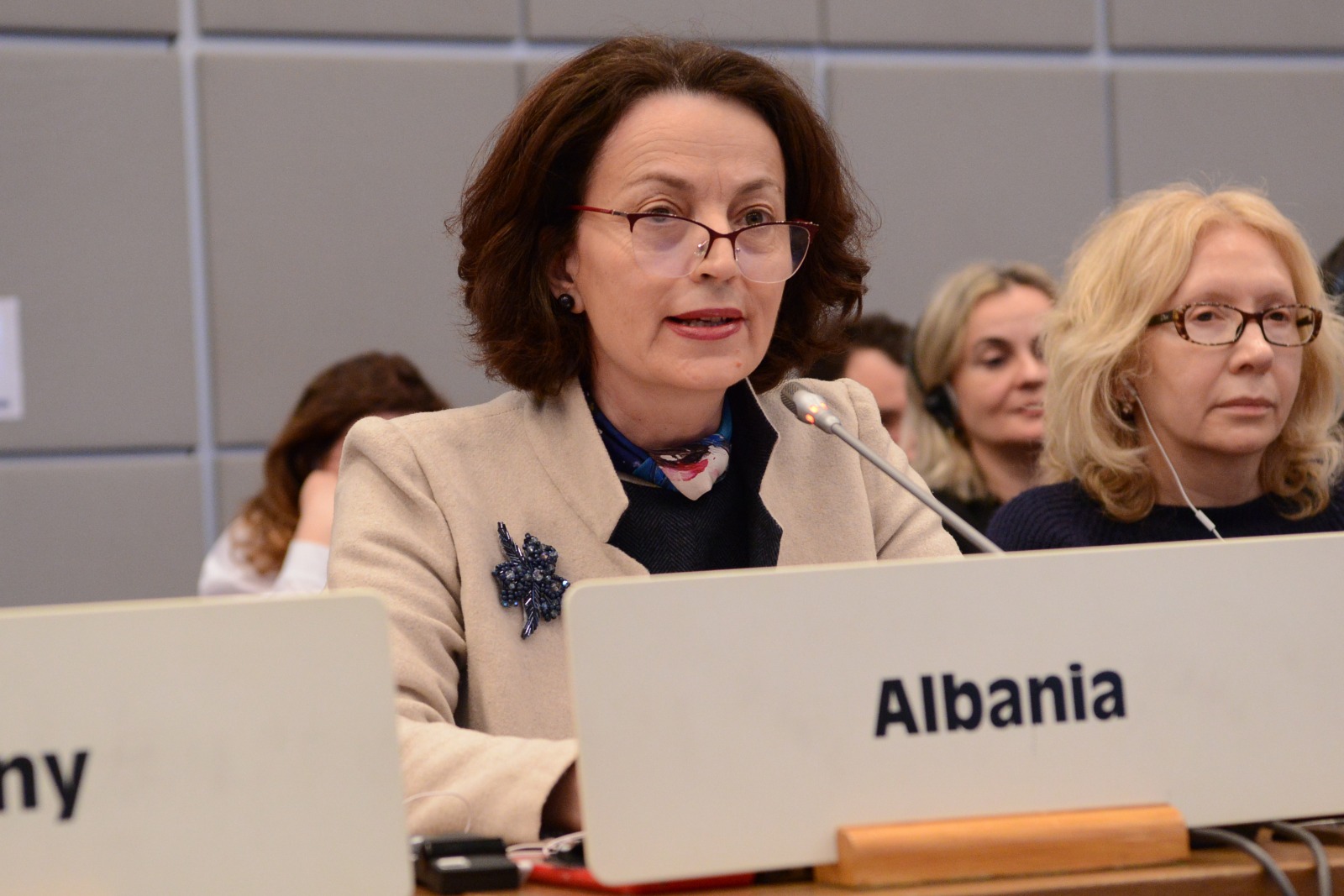Statement by H.E. Ms. Eglantina Gjermeni, Ambassador, Permanent Representative
1514th PC, Agenda item: On the anniversary of NATO response to the humanitarian crisis in Kosovo
Thank you Chair,
Twenty-six years ago, NATO intervened to stop the systematic persecution, mass killings, and forced displacement of Albanians in Kosova. On March 24, 1999, Operation Allied Force began a 78-day air campaign that put an end to a wave of mass atrocities and ethnic cleansing and paved the way for a free, sovereign, and independent Kosova.
This intervention was not only necessary to halt the humanitarian catastrophe but remains one of the most successful campaigns in NATO’s history. Today, the Republic of Kosova has been exemplary in the region for its democratic progress, institutional resilience, and commitment to fundamental freedoms, steadily moving towards full Euro-Atlantic integration.
Mr. Chair,
The documented atrocities in Bosnia and Herzegovina, Croatia, and Kosova stand as some of the darkest chapters in European history. The International Criminal Tribunal for the former Yugoslavia (ICTY) has unequivocally confirmed the crimes against humanity and genocide committed by Serbian forces under the Milosevic regime. The attempt to erase entire communities was carried out through widespread and systematic war crimes, including mass executions, enforced disappearances, torture, sexual violence, forced displacement, the destruction of homes and cultural heritage and the coverup of victims in mass graves. These atrocities demanded an urgent international action. And NATO’s intervention was a response to these heinous acts, not an attack on a people, but a necessity to halt the slaughter of innocent civilians and dismantle a regime that had terrorized the region for a decade.
Mr. Chair,
It remains deeply concerning that, even today, there are persistent attempts to distort historical facts and evade responsibility for the war crimes committed in Kosova. Instead of acknowledging the suffering inflicted upon Albanians, Bosnians, and Croats, and instead of cooperating in the search for the remains of thousands of innocent victims still unaccounted for, we continue to witness revisionism, denial, and a reluctance to fully condemn the perpetrators of these crimes. The true path forward requires a commitment to truth and justice: acknowledging past atrocities, issuing an unequivocal apology to the survivors and the families of the victims, and embracing a future built on reconciliation and mutual respect.
Reconciliation requires action. It requires an unambiguous rejection of the Milosevic regime and all those who supported its criminal policies and most importantly, it requires a genuine commitment to peace, one that extends a hand of recognition and cooperation to the Republic of Kosova, as a free and independent state.
In concluding, as we honour the memory of those who perished due to Milosevic’s ethno-nationalism, we reaffirm our unwavering commitment to truth, justice, and the fight against historical revisionism. The future of the Western Balkans hinges on an honest reckoning with the past, mutual respect, and a steadfast dedication to peace and cooperation. We also express our gratitude to our NATO allies and honour the service and sacrifice of the brave men and women who ensured peace and stability in Kosova, inspiring our shared commitment to human rights and democracy.
I thank you.






